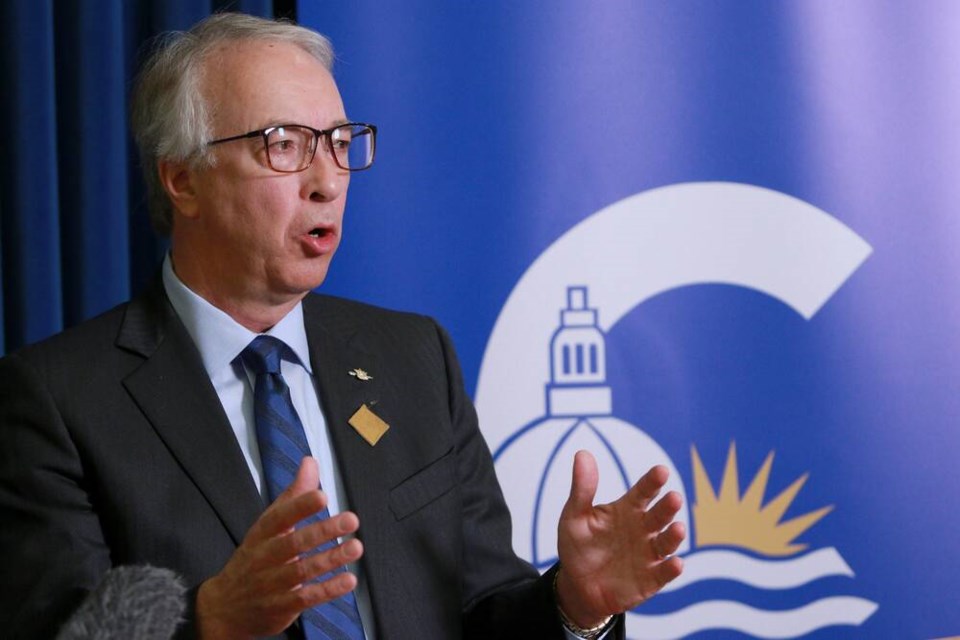The NDP government and the BC United opposition are wrapping up four months of battling at the legislature, much of it with an eye to strategic positioning for the provincial election in October.
So which party gained the most advantage? Easy. The Conservative Party of B.C.
From a standing start, the breakaway two-man caucus — neither of them elected as Conservatives — has horned its way into many of the arguments. Some days, like Tuesday, the duo is the dominant talking point for Premier David Eby.
He has been nervous about them from the day they first appeared in the legislature, just seven months ago. Polling trends over the past year suggest he has every reason to be wary.
Conservatives were a small club out on the fringes before BC United Leader Kevin Falcon decided one of his veteran northern MLA’s skepticism about the cause of climate change was reason enough to escort him out the door.
So John Rustad, who has won five elections as a B.C. Liberal in Prince George-Omineca and Nechako Lakes, became an independent MLA. He pondered his options for six months, then joined the Conservatives in 2023. Within six weeks, he became the leader.
The first glimmer of potential came three months later in a Langford byelection. The NDP’s Ravi Parmar won, but the news was that the Conservatives came second, while the BC United candidate came fourth, beating only the Communist.
Then, BC United MLA Bruce Banman crossed the floor last fall to join Rustad and, for the first time in 50 years, the Conservatives were an official party with a caucus in the legislature.
They are an unlikely pair. The professorial Rustad presents as a mild-mannered Northerner from a small community near Prince George.
Banman, a former Abbotsford mayor, dresses loud, talks louder (the NDP MLA who sits next to him sometimes puts in earplugs when Banman stands to speak) and pounds right-wing wedge issues as hard as possible.
All the polling in the past year suggests the Conservatives have a lot of momentum. The party has gone from the 10 per cent range in voter preference to 20s and 30s.
It passed BC United months ago and three recent polls put them within single-digit range of the NDP.
The big question is whether that support is all a mirage — spillover stemming from the federal Conservatives growth at the expense of the floundering federal Liberal government.
Eby’s worries were on full display Tuesday at a news conference at George Jay Elementary School. During a Q and A with reporters he landed multiple times on the “threat” Conservatives pose to B.C.
He said they want to cut health and education funding, they will cost British Columbians in tangible ways and they are even “putting into question a woman’s right to choose” (an abortion).
The Conservatives “are a real threat. They are not to be taken lightly.”
The abortion issue reference was based on an oblique remark by Banman last week. Although one of his candidates has anti-abortion posts on social media, Rustad said Tuesday his party plans no moves on abortion.
He said the polling momentum represents a grassroots move toward common sense (a federal Conservative talking point). His key advantage is that he has nothing to lose, so he can take extreme positions to highlight how new and different his party is.
“Voters will have to make a choice … whether they want more of the same that’s happened over the last 33 years, or whether they want a positive opportunity.”
Rustad said people are “sick and tired” of the affordability, housing and addiction crises.
There was speculation early on whether a United-Conservative merger might be in the offing, as a way to unseat the NDP. Now the speculation is whether the Conservatives even need the United vote.
A merger is all but impossible now as both parties have named most of their candidates. But Rustad said it still comes up.
“There have been conversation between various business groups with regard to what the potential could be, but I can tell you we will not compromise on principles.
“People are looking for something different and that’s what we’re going to deliver.”
Polls are just snapshots, they say. But the consistent growth trend line is a clear picture of a party that has come a long way in a short time.
>>> To comment on this article, write a letter to the editor: [email protected]



